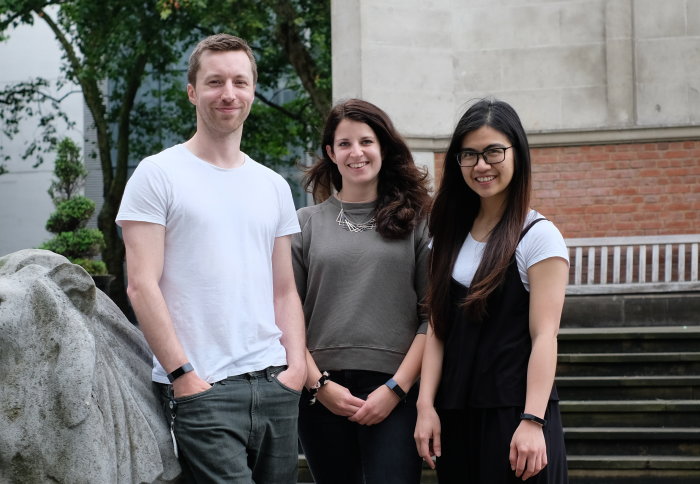Acyl-cLIP: a universal assay for lipidation enzymes

Our new publication details a novel assay that can be readily applied to any enzyme that attaches or removes lipid posttranslational modifications
Lipid transferases and hydrolases are important drug targets in a range of diseases, and methods to screen large numbers of compounds against these enzymes are key for identifying new medicines. Unfortunately, existing assays for these enzymes suffer numerous drawbacks, from hazardous radioactive reagents to high costs. The Tate group has already developed improved assays for lipid transferases that work through by-product detection by-product detection, click-chemistry or microfluidics, however, these can still only be applied to certain target enzymes.
Now, in a new paper in Chemical Science new paper in Chemical Science, Tate group members Tom Lanyon-Hogg, Markus Ritzefeld, Jasmine Bickel, Nattawadee Panyain and Tony Ocasio have developed the first universally applicable assay for lipid transferase or hydrolase enzymes. The assay uses the increase in hydrophobicity, which is a fundamental characteristic of lipidation, to drive the assay readout, thus making it applicable to any type of lipid modification. The increase in hydrophobicity causes lipidated fluorescent peptides to bind to larger lipophilic molecules (detergents or serum albumen), resulting in a decrease in the speed of molecular tumbling and an increase in the polarisation of emitted fluorescence. Originally developed to study fatty acylation of Hedgehog peptides, the method has been named ‘Acylation-coupled Lipophilic Induction of Polarisation’ (Acly-cLIP).
Acyl-cLIP allows sensitive, versatile and real-time measurement of lipidation in microplate format. The assay has already supported advances in the Tate group, from validating new lipid probes to high-throughput screening to identify new inhibitors of previously intractable enzyme targets, and should accelerate drug discovery campaigns against these targets in future.
This work was performed in collaboration the Magee group at Imperial, Siebold group at the University of Oxford and researchers from the Francis Crick Institute, and supported by Cancer Research UK and the Imperial Confidence in Concept Scheme.
Article supporters
Article text (excluding photos or graphics) © Imperial College London.
Photos and graphics subject to third party copyright used with permission or © Imperial College London.
Reporter
Jennie Hutton
Department of Chemistry